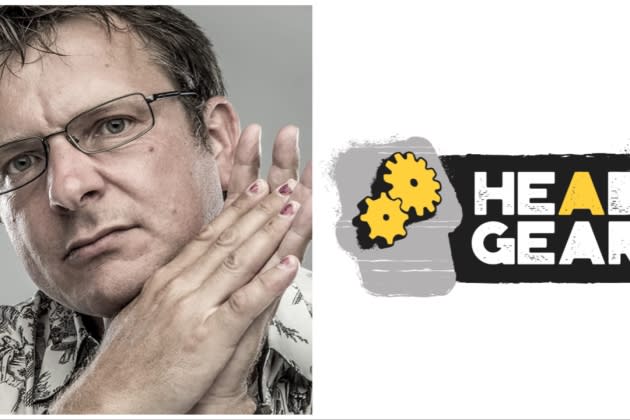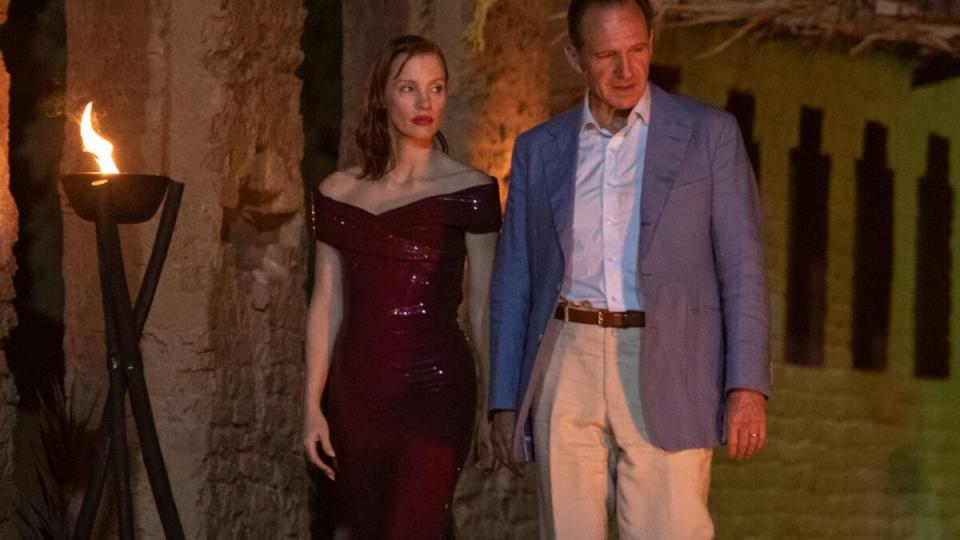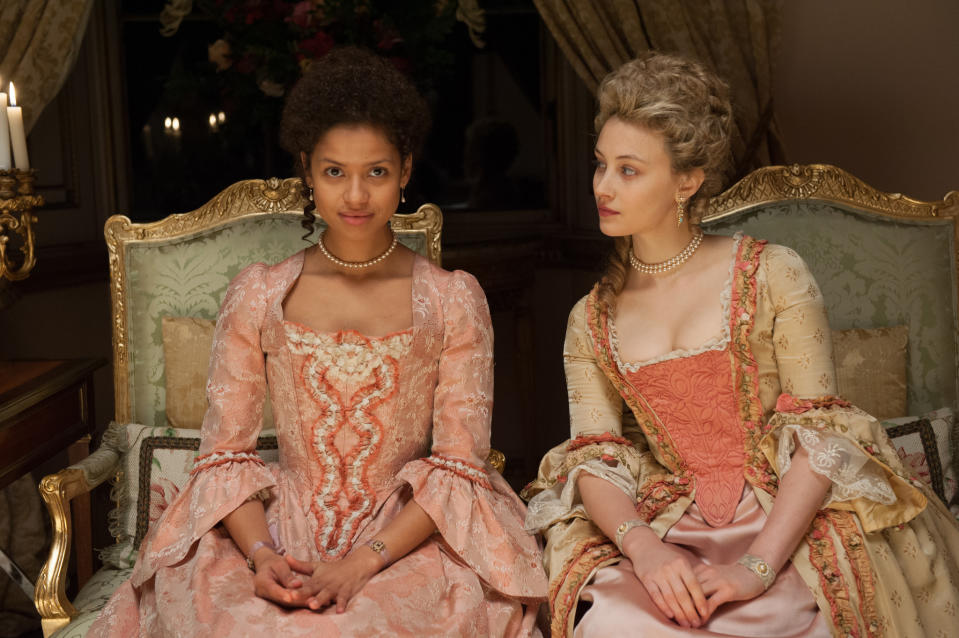International Disruptors: How Phil Hunt’s Punk Roots Have Steered Head Gear Into A Prolific Film Financier & Why It’s Important To “Make Assets Out Of Problems”

Welcome to another edition of Deadline’s International Disruptors, a feature where we shine a spotlight on key execs and companies outside of the U.S. shaking up the offshore marketplace. This week we’re talking with British indie film veteran Phil Hunt, who is the founder of a raft of companies including production outfit and film financier Head Gear, international sales business Bankside and, more recently, New Zealand and Australian distribution genre label (Yet) Another Monster Company.
Phil Hunt is not a conformist. From the moment he burst onto the British independent scene more than two decades ago with his microbudget productions Fast Food and Chunky Monkey – the former starring a young Gerard Butler and the latter an off-beat black comedy about a loner with a penchant for Ben & Jerry’s ice cream and Julie Andrews – it was clear that this was a guy who was not going to be a part of the status quo.
More from Deadline
“Punk taught me to make assets out of problems,” says Hunt, a former advertising and music photographer who mingled with the likes of The Clash, Sex Pistols, Chiefs of Relief and Big Audio Dynamite during the first chapter of his career.
“I remember when I first saw The Clash in Edinburgh at the age of 12. It was just something that I had never seen before – the energy and disruption in a venue and the political nature of them was a wakeup call at that age and then, from that moment on, the kind of DIY ethics of punk kind of came calling.”
And it’s working well for him. In 25 years, the exec has steadily been building seven companies including prominent production and financing label Head Gear, international sales outfit Bankside Films and distribution companies (Yet) Another Distribution Company, Bohemia Media, which supports marginalized voices and, more recently, New Zealand and Australia label (Yet) Another Monster Company.
Head Gear, his first company, has pivoted from a small UK production label to one of the most prolific film financiers in the UK, having invested more than $300M of capital in the last two decades across some 350 projects, including Johnny Depp starrer Black Mass, BAFTA-winning Rocks, The Forgiven with Jessica Chastain and Ralph Fiennes and Lily James starrer Pride and Prejudice and Zombies.
Head Gear has just inked a formal deal with leading asset manager AllianzGI, which has more than $600BN in assets under management. The two companies, which have been working together across the last three years, have invested in projects such as Cannes Un Certain Regard title How to Have Sex, Fisherman’s Friends 2, He Went That Way, Book of Love, And Mrs and Kill Room.
“The intention is to step up, increase financial commitment and increase risk through a mixture of cash flow, debt, tax credits and pre-sales,” says Hunt, who adds it will currently operate on project-by-project basis.

Humble beginnings
It’s been a slow and steady rise for Hunt throughout the years and he’s straightforward when it comes to talking about the ups and downs of his career with no sense of regret. He says he spent his first 10 years in the business “figuring it all out and stumbling from one idea to the next.”
After Chunky Monkey created some hectic British press thanks to its off the wall sexual combination of ice cream and an Andrews lookalike (six companies threatened to sue the £160,000 budget project, including Andrews and Ben & Jerry parent company Unilever), its director Greg Cruttwell introduced him to Compton Ross, a Scottish oil entrepreneur who had created the first electronic gauge to measure the depth of oil. The two hit it off and Ross decided to invest £300,000 in their new production outfit Head Gear with the hope that the company would be self-sufficient in three years.
“I wrote a terrible business plan,” recalls Hunt. “And I said to Compton, ‘Look, I’m probably going to fail.’ And he said, ‘Let’s just give it go.’”
As it turned out, it did fail but Hunt and Ross were undeterred. When producing his third movie Rabbit on the Moon, a Mexican-UK co-production, Hunt recalls no one wanting to finance it so Head Gear put in £100,000, got a 25% return and the rest is history.
“I remember thinking, let’s forget about developing and be an investor,” says Hunt.
A few years later, Head Gear began to cash flow some films that were being packaged by Beyond, an Australian-owned international sales company headed up by Hilary Davis and Stephen Kelliher and persuaded the duo to come and form Bankside with him in 2007. (Davis stepped down after 11 years in 2018 and Kelliher remains MD at the company now).
For a period, Hunt was very hands on with Bankside as it built up its slate and reputation in the sales arena. Head Gear invested minimum guarantees into projects within the banner. But it was 2012’s Belle, directed by Amma Asante, that marked a big turning point for the company. The period-drama saw Gugu Mbatha-Raw star as an illegitimate, mixed-race daughter of a British admiral who eventually plays a pivotal role in the campaign to abolish slavery in England. Fox Searchlight picked up the title for North America and the UK.
Soon after, Beyond folded and Hunt picked up the rest of the company’s catalog. “We had all of these concepts that Hilary and Stephen developed through working with the company, and we did quite a lot of Australian movies and I’d been in and out of Australia quite a lot, which is why we’ve got presence down there.”
Next steps
With Bankside on its way, Hunt was keen for Head Gear to gain more momentum and he set his sights on moulding it into an independent financier that sat outside of Bankside. At the time, he was investing mainly into Bankside titles, but he wanted Head Gear to grow beyond that.
“I didn’t want to just do a half dozen movies a year. I didn’t want to just do the Bankside taste or be limited to that,” he says. “I wanted to expand, and I saw opportunities in tax credits and pre-sales as a business. In 2012 my aim was to deploy £5M and I deployed £17M.”

It was a 2.0 version of Head Gear, which has since become one of the most active lenders coming out of the UK in the last decade with capital from the Hunt’s silent partner Ross and it can provide up to 100% of a budget. With the AllianzGI deal also on the table, things are starting to look very different for a company that was started 21 years ago in the Brit micro-budget space.
Hunt is passionate about giving back to the indie community that built him and he’s consistently been unafraid to start ventures at times when others might cower. In 2020, he and his partner Lucy Fenton established Bohemia Media, a London-based production and distribution company that “amplifies marginalized voices.”
With a large circle of friends in the LGBTQ space, Hunt says that the concept of Bohemia came out of an idea where “people of these worlds can be safer.” The couple bought a London pub The Apple Tree in 2018, which was a base for the LGBTQ community in Clerkenwell (it is currently closed after Covid-19 saw a drop off in business – but Hunt says there are plans for expansion in the future). Its first release was Chinonye Chukwu 2019 Sundance winning title Clemency, which saw actor Alfre Woodard earn a BAFTA nomination.
“It’s about giving back,” says Hunt of Bohemia. “We know who we are and what our identity is with this company, and we want to amplify marginalized voices. I want to try to change perception a little bit.”
He’s also launched (Yet) Another Distribution, “a very no-frills distribution company,” which focuses on very small budget films, as well as the recently launched New Zealand and Australian label (Yet) Another Monster Company, which has seen Head Gear partner with horror distribution specialists Monster Pictures to develop, distribute and finance horror and genre titles. The latter is already in production on its first project Grafted, a coming-of-age body horror from Kiwi filmmaker Sasha Rainbow. Mister Smith is selling the title internationally.
In terms of synergies with companies, Hunt says, “It’s whatever is best for the film. I don’t try and force anything into any of these companies as they are all a bit different.”
Lessons learned
Hunt quips his career trajectory has seen him go from “being an artist to a risk analyst.” The current market in the UK is a “very difficult one” to be able to plan in with the aftershocks of Covid-19 still being felt, the distribution sector in pieces and the indie production sector being priced out of the market.
He points to the dangers of the English-speaking territories outside of the U.S. at risk of becoming service industries for the streamers, all who have imprinted themselves heavily in the UK, Australia and New Zealand.
“The streamers have taken all of the crew space and are paying people well, which is a great thing and great for crew but for the independent producers and the independent film world, it’s not working in the slightest and that’s the problem we’ve seen.”
He adds, “But no one really knows, right? If I think about what everyone’s forecasting has been over the past 25 years since I started in the business, no one has got it right. My view is to grow slowly but surely, make assets out of your problems and provide a good and honest service to people.”
Throughout it all, remaining true to his punk roots has stood him in good stead. “What punk was really about was art and creativity and doing things your own way. It was about creating sense from disorder and throwing out the old and coming up with new ways of doing things.”
Best of Deadline
Hollywood & Media Deaths In 2023: Photo Gallery & Obituaries
2023 Premiere Dates For New & Returning Series On Broadcast, Cable & Streaming
Sign up for Deadline's Newsletter. For the latest news, follow us on Facebook, Twitter, and Instagram.

